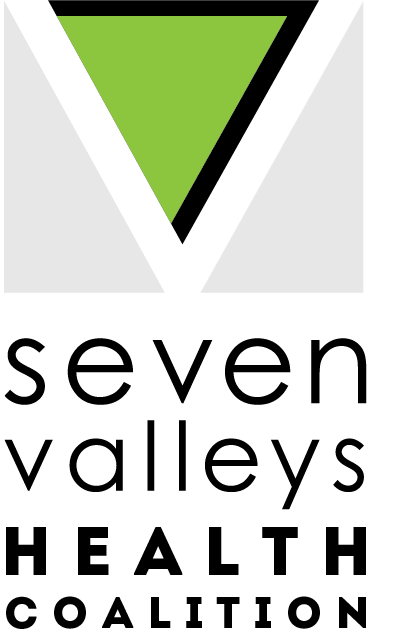What is a food rescue?
A Food Rescue, or food recovery program takes edible food that would otherwise go to waste and redistributes it in the community. Food rescues help to address food insecurity. Food insecurity is when folks are unable to access enough affordable and nutritious food. In the United States, the United States Department of Agriculture estimates that between 30-40 percent of the food supply goes to waste. Food Rescues are one way we can help to eliminate waste and end hunger. When high-quality food is thrown away instead of being eaten, it is known as food waste. There are many reasons food waste occurs, such as leftovers being thrown away (at home, stores, and restaurants), crops left in fields due to low prices or too many of the same crops, manufacturing or transportation problems, and food not meeting retailers’ standards for color and appearance. This is where food rescue is so important. Seven Valley’s Food Rescue can take that safe, edible food and redistribute it out into the community for consumption.
Reasons for Food Waste
Leftovers after events or from meals cooked for large groups may be trashed once the event has ended. While organizations may do their best to control waste with head counts, pick meal options ahead of time, and control portion sizes, there is often food left at the end of the night.
Crops may be left in fields, yet still edible. Crops are left in fields due to labor shortages, business/school closures such as what we saw in the Covid-19 pandemic, and the cost to remove. When looking at the cost to remove, farmers must look at the cost of transportation and labor to ensure they can pay the cost. Market conditions may cause farmers to throw out edible food. Labor shortages on farms or imperfect produce are additional causes of food being left in fields.
Manufacturing or transportation problems may cause food waste for a variety of reasons. This could be harsh weather, causing transportation delays or delivery delays, problems processing the food, or overproduction of food. Unstable market demand also contributes to food waste.
Food that does not meet retailers’ standards for color and appearance, is often tied to a quality measurement for a retailer. This could be food that is abnormally shaped, sized, or even off in color. If retailers are concerned their customers will not purchase the food coming in, they can reject the items on the truck.
How does SVFR help?
Seven Valleys Food Rescue (SVFR) aims to work with businesses, farmers, transportation agencies, and retailers in the area to address the reasons for food waste listed above. One such way is our gleaning events. Gleaning involves volunteers collecting food from farmers’ fields that have already been harvested or where it is not profitable to harvest due to several reasons. Learn more about gleaning here: https://www.sevenvalleyshealth.org/blog/foodwastefriday-gleaning. SVFR accepts donated items from retailers, farmers, and gardeners. We then share/redistribute that food to the community through partnerships with food pantries, schools, and community-based organizations. Recently, we had a large donation of strawberries. After we gave them away to our partners, we were able to host a community event giving strawberries away for free, to more than 400 families in the Cortland area.
Once this safe, edible food is rescued from being wasted, Seven Valleys Health Coalition contacts our partner agencies like food pantries, churches, schools, and more to redistribute the food to the community for free. This helps reduce food waste, while fighting climate change. Food rescues fight climate change by saving food from going into landfill increasing methane emissions from landfills. By rescuing and redistributing this food, we can address nutrition insecurity. Fresh food may be expensive and can be overlooked by families or individuals who are already on a tight budget. Food rescues focus on whole foods, fruits and vegetables, and proteins which have a shorter shelf life than boxed or canned goods.
Want to volunteer, contact Avery Barber at avery@sevenvalleyshealth.org or 607-756-4198 to learn about how you can help Seven Valleys Food Rescue reduce both nutrition insecurity and food waste.


